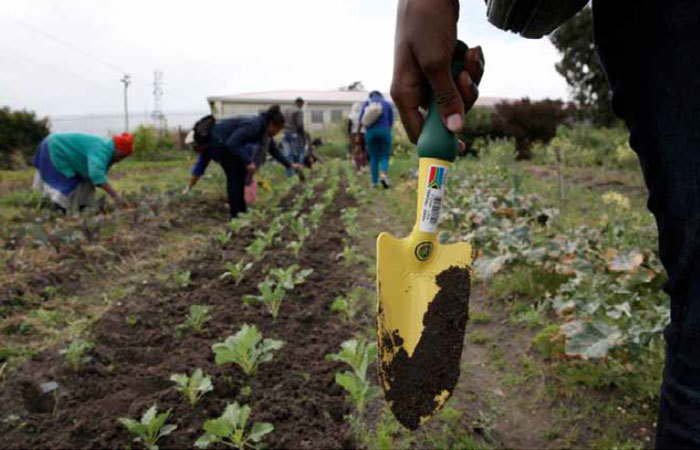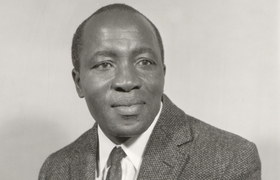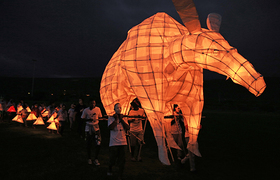Digging below the surface
25 March 2015
At the heart of this month's edition of Monday Monthly, there's an apt metaphor for our changing approach to this publication. You'll find a map of main campus, but looked at not just from the surface. John Compton takes us down into the Earth's mantle to expose the layers of rock on which UCT stands, and of which it's built.
When it started out 33 years ago, Monday Monthly (then The Monday Paper) was a two-page weekly publication aimed primarily at staff – with a calendar of interesting events on campus, short articles on staff escapades and successes, and university updates. It had an incredibly successful run. With more communication moving online, however, the role and emphasis of Monday Monthly started to change.
Over the last few years, you might've noticed new features appearing, and tweaks in the publication's look and feel. In the next year, we'd like to start digging deeper into UCT. While we thoroughly enjoying scratching around the surface of UCT as it looks currently – its daily events and activities – we're also intrigued by its hidden aspects, its untold stories and unsung heroes. We'd like to start digging down and unearthing those layers.
2015 is our year to experiment with stories that take in a broader range of perspectives and people. Look out for regular features such as 'ask an expert', where we ask pressing questions of UCT's researchers and practitioners (this month, the burning questions on our lips were largely to do with SONA, and its fallout). Or our centrespread map, an opportunity to explore UCT and its surrounds through different lenses – whether those are of memory, history, science, art or research. This month it's geology. Next month, a special feature in time for Freedom Day, drawing on some of the recollections from students and staff who attended UCT during the struggle years – their memories of sit-ins, Casspirs on campus, and the day-to-day of Moscow on the Hill).
At the same time, we're also experimenting with UCT news online, and how Monday Monthly works in the digital space – looking to create more visual, interactive features.
If you have any feedback for Monday Monthly or UCT news – whether in print or digital formats – we'd welcome it. Furthermore, if someone you know has an untold story, is an unsung hero, or has an interesting perspective on our campus or its surrounds – even if they don't work or study at UCT anymore – please get in touch with us at newsdesk@uct.ac.za. We hope to tell stories that are as deep as they are wide, as diverse as they are common to all human experience. Without you, however, not only do we not have an audience; we also don't have the storytellers.
Bring your tales, your trowels, your excavation equipment, and join us.
Dig it?
The Newsroom Team
|
Monday Monthly started out in 1982 as a weekly staff newsletter. Since then, it's grown into a monthly publication covering a broad variety of campus life – from research, to student initiatives, to human interest. If you have an interesting perspective on the university, or a great story to tell (whether in words, pictures or any other medium), mail us at newsdesk@uct.ac.za. If you're looking to advertise in the classifieds, or subscribe to our mailing list, drop us a line at Ads-MondayPaper@uct.ac.za. For general information, contact Sharifa Martin at 021 650 5816. Manager, Newsroom and Publications: Chris Mitchell Editor: Judith Browne Contributors: Abigail Calata, Thaheer Mullins, Yusuf Omar, Tanya Pangalele, Birgit Ottermann, Sam Brighton, Helen Swingler, Michael Hammond Designer: Sean Robertson Proofreader: Dave Buchanan |
 This work is licensed under a Creative Commons Attribution-NoDerivatives 4.0 International License.
This work is licensed under a Creative Commons Attribution-NoDerivatives 4.0 International License.
Please view the republishing articles page for more information.










